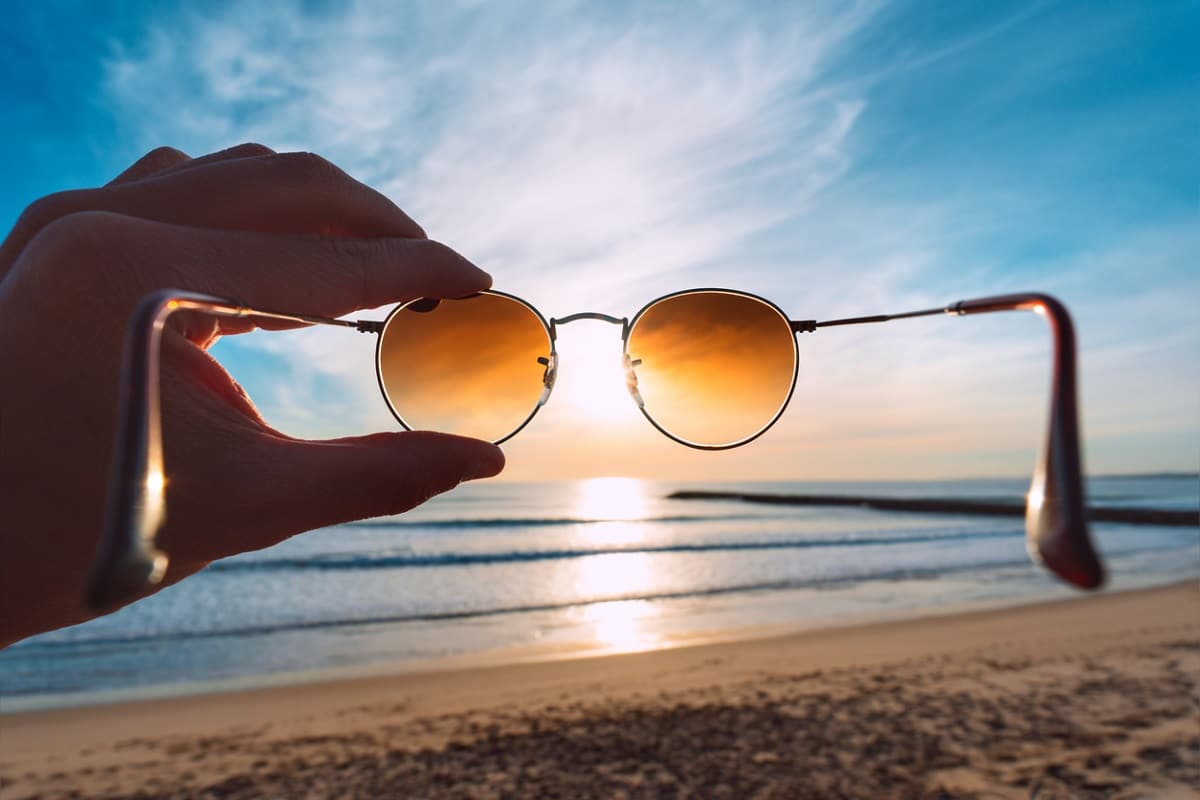As local optometrists, we often see people frustrated by everyday vision challenges, like eye strain and light or glare sensitivity – and for many, the problem isn’t their eyesight. It’s that their glasses simply aren’t suited to their needs and lifestyle. This is where the right lens coatings can make a world of difference.
One customer for example, regularly drove long distances to visit family. They came in complaining of difficulty seeing clearly at night, often ending up with pounding headaches.
The glare from headlights wasn’t just annoying – it was making every trip uncomfortable and downright stressful. Our optometrist recommended adding an anti-reflective coating to their prescription glasses, as it would help minimise the issues they experienced when driving at night.
This is just one example of how tailored lens treatments may help turn your daily frustrations into clear, comfortable vision.
Why Lens Coatings Matter
Choosing the best lens coating for glasses isn’t just about improving vision – it’s also about comfort, protection, and long-term durability.
In fact, research shows your choice of lens material, coatings, and overall design can make a noticeable difference in daily life – helping to make those ordinary tasks easier, safer, and more enjoyable (1).
There are a variety of lens treatments available to target specific needs – from reducing screen-related eye strain to preventing fog, scratches, and glare.
Finding the Best Lens Coating for You
The first step for finding the right lens treatment is booking an eye test with your local optometrist. They will do a thorough examination and come up with a treatment plan for addressing your concerns and improving your eye health.
If it’s deemed a lens coating will be useful, options may include:
- Anti-glare coating for glasses: An anti-glare lens coating reduces the amount of glare reflecting off your lenses from bright sunlight, reflections, and harsh artificial light sources. This coating can be particularly useful for night drivers, office workers, or anyone sensitive to bright lights.
- Anti-reflective coating: Anti-reflective lenses are similar to anti-glare, however they reflect glare from both the front and back of your spectacles – eliminating it almost entirely. This can be a great option for reducing eye fatigue and improving visual clarity, especially for people who work long hours on screens or do a lot of night driving – especially with the advent of LED-based headlights.
- Anti-scratch coating for glasses: A scratch resistant coating adds a protective layer to resist everyday scuffs and marks, helping your lenses last longer. This can be beneficial for children, active adults, and those who wear glasses daily.
- UV-blocking treatment: This coating protects your eyes from harmful ultraviolet rays, helping to reduce the risk of long-term eye damage (2). It is a highly recommended addition for outdoor workers, beach regulars, and anyone who spends a lot of time in direct sunlight.
- Polarised Lenses: Polarised glasses have a lens coating applied that filters out all horizontally polarised light, such as that coming from surfaces like water or roads – which are known to produce glare. They’re designed to reduce eye strain and enhance visual clarity, and are often recommended if you spend a lot of time outdoors around water, playing sports, or driving.
- Blue light filter: Blue light coating for glasses helps reduce eye strain from prolonged screen use by filtering out potentially irritating blue light from digital devices (3). It may be beneficial for office workers, students, and anyone using digital devices for long periods.
- Anti-fog coating for glasses: An anti-fog lens treatment helps prevent condensation on lenses caused by sudden temperature or humidity changes, or when mask-wearing. It can help you maintain clear vision and reduce the need for constant cleaning – particularly useful for healthcare workers, gym-lovers, and anyone who has to regularly transfer between environments.
Many people benefit from combining multiple coatings, and your optometrist can guide you on that. They can also be applied to both spectacles and sunglasses.
Like Some Advice?
Book an eye exam today and if you do need to wear glasses, our experienced Redlands optometrists can guide you to the right lens treatment/s for your needs.
References:
- https://link.springer.com/article/10.1007/s10111-017-0442-2
- https://www.sciencedirect.com/science/article/abs/pii/027554089598237H
- https://www.tandfonline.com/doi/abs/10.1111/cxo.12798

